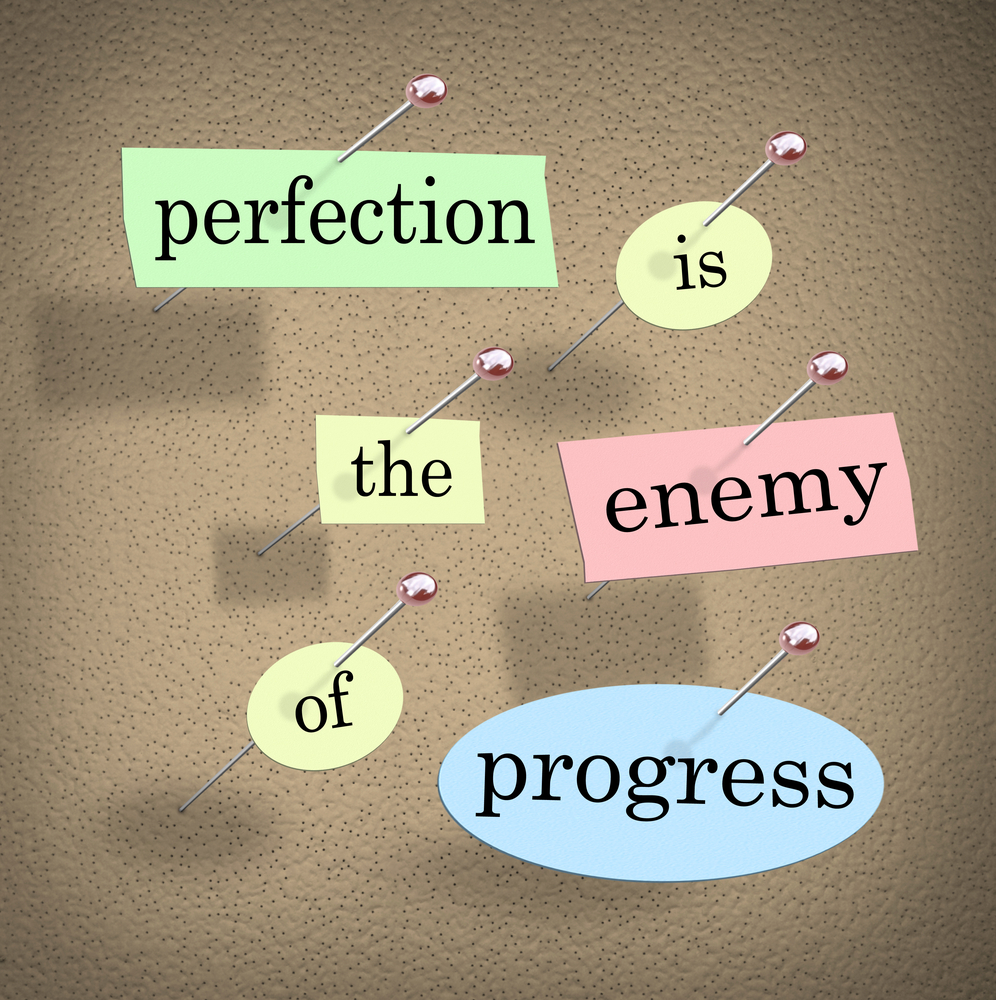PERFECTIONIST
Written by Natasha Burke November 13, 2O20

Are you one of those people who has to be perfect? Who has to do everything perfectly? Who has to look perfect? I am one of those who is recovering from being a perfectionist. It’s no easy task but I constantly remind myself, I don’t have look or be perfect at everything I do.
No one is perfect which makes us human. Being imperfect is what makes us different than anyone else. Brene Brown’s definition on perfectionism from her book, The Gifts of Imperfection, “perfectionism is self-destructive simply because there is no such thing as perfect. Let go of who you think you’re suppose to be and embrace who you are.” I invite you to ponder this powerful message from Brene.

Perfection is more about perception. For me, being perfect means don’t screw up, don’t say anything wrong., look a certain way, the list goes on and on. In thinking this way, it led to judgement, fear, low self-esteem and not being content with me nor my life. This was always a stressor for me.
We put so much stress on ourselves by attaining perfectionism. I invite you to closely observe your behavior around having to be perfect. Does this make you feel good? It’s important to have an understanding of why you think you need to be perfect. I think it stems from our childhood where we felt bad or wrong. Trying to be perfect all of the time burdens a lot of people and causes unhappiness. We can always strive for perfection on tasks that can be achievable such as a student aiming for a good grade or giving 100% at our job. Healthy perfection examples are being highly organized, paying close attention to detail, striving to master a task or perform better, being optimistic and have high levels of motivation. This is what I strive for.

When we judge ourselves when we are not doing things perfectly or look perfectly it causes pain and suffering. This is not a way to live life. The reality is that being in a state of perfectionism is really a disguise of our insecurity.
Perfectionism can make you feel unhappy with your life. It can lead to depression, anxiety, eating disorders, and self-harm. It could lead you to stop trying to succeed.
Perfectionism leads to regret and dissatisfaction. Think about all the things you regret. How does this make you feel? It leads to setting unrealistically high expectations for ourselves and others. When we are in this state of mind, we are quick to find fault and overly critical of mistakes made.
So how can we overcome perfectionism? Reevaluate your standards. Be a healthy perfectionist not a neurotic one which means being extreme.
It’s important to stop the all or nothing thinking, like black and white and success or failure. This is self-defeating and not realistic. There isn’t a person who achieves success smoothly without failure. Allow yourself to fail. Pick yourself back up if you fail. Don’t judge yourself for doing something wrong, instead learn from it. Most importantly, have compassion with yourself while you work on not being perfect. You are human!

